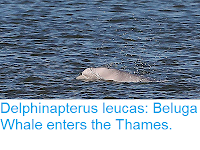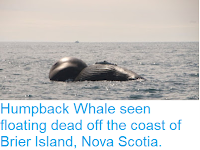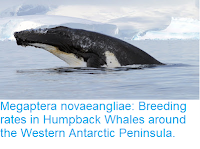Two Sperm Whales, Physeter macrocephalus, have washed up on beaches on southern Sulawesi, Indonesia, and Northland, New Zealand, this week. The first Whale, measuring 9.5 m in length, washed up on a beach near Wakatobi on southeastern Sulawesi on Monday 19 November 2018. Examination by staff from the Wakatobi National Park found 5.9 kg of plastic inside the animal's stomach, which is thought to have been the cause of the Whale's death. The second Whale, which measured about 15 m, was stranded alive on a beach near Doubtless Bay in Northland, New Zealand late on Saturday 23 November, and despite attempts to save it died overnight. In keeping with local tradition the Whale will be given a full funeral by the Ngāti Kahu Māori people, as is the case with all Whales and Dolphins washed up in the region, though in a break with tradition the group have decided to allow scientists to take samples from the animal's stomach, due to concerns that plastic in the environment may be harming the species.
A Sperm Whale, Physeter macrocephalus, that washed up on a beach in southeast Sulawesi on Monday 19 November 2018. Kartika Sumolang/WWF Indonesia.
Sperm Whales are the largest species of Toothed Whales, reaching about 20.5 m in length. The species is currently considered to be Vulnerable under the terms of the International Union for the Conservation of Nature's Red List of Threatened Species, with a population that probably measures somewhere in the hundreds of thousands. The species is thought to have had a population of over a million around the beginning of the nineteenth century, but to have fallen to about 29 000 by1880. The population rose again in the early twentieth century, as targeting of the species by Whalers declined, then fell from 1946 to 1980 as hunting of Sperm Whales increased again. Since 1985 the species has been protected by a moratorium on the taking of Whales agreed by the International Whaling Commission, and although a few Sperm Whales have been taken by the Japanese Whaling fleet since this time, the main threat to these animals is thought to come from Fishing nets, in which they can become entangled and drown, and plastics, which they can ingest, filling up their stomachs and preventing them from taking their normal food (mostly Squid).
See also...
Follow Sciency Thoughts on Facebook.







